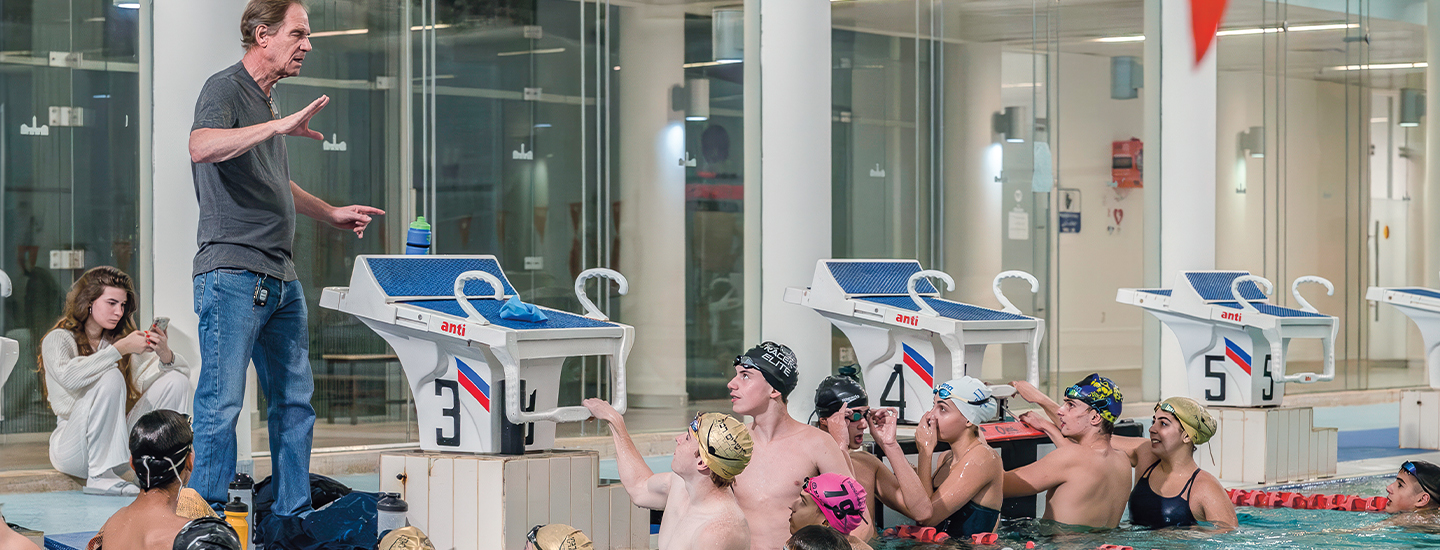The war has tested that normalcy in ways the team is still processing.
Mustafa Abdu, 18, is one of the Muslim swimmers on the Greater Jerusalem team. The day after the October 7 attacks, he uploaded a photograph to his Instagram account. The photo showed a Palestinian child being carried by men with grief-stricken expressions. The child was wrapped in a white cloth, which Muslims use for the deceased.
A caption above the picture read, “Where were the people calling for humanity when we were killed?”
Mustafa also posted a warning that sometimes it can be hard to tell which side really is in the wrong.
The swimmers on the team follow one another on Instagram, so Avishag saw the posts. Shocked, she texted Mustafa in an exchange she later shared with The New York Times.
“Musta, do you know how bad the situation is in Israel right now? I respect what you have to say, I’m truly asking you.”
Mustafa replied, asking whether she thought, like some people on social media, that all Palestinians were murderers.
“I didn’t say you were, Musta,” Avishag wrote back. “It’s the Hamas organization.” Children, older people, entire families had been killed or kidnapped, she added. “I saw videos that are never going to leave my mind,” she said, offering to forward them if he wanted but saying that she didn’t recommend watching them.
We are not murderers, Mustafa wrote in response. “Israel was attacking us from a long time, and everybody know that.”
“What???” she replied. “With all the respect, that’s not true.”
He said, “Always we are wrong and always you are the right.”
“That’s not what I said,” Avishag responded. “Right now Hamas are in the wrong.”
She told Mustafa to tell her if he wanted the videos. She wanted to prove her point but also to save their friendship. She texted him, “I have to ask if we are cool?”
He placed a heart on her message and typed “yes” in Spanish. She hearted his message too. It seemed they had achieved an uneasy peace, although they couldn’t be sure until they swam together again.

